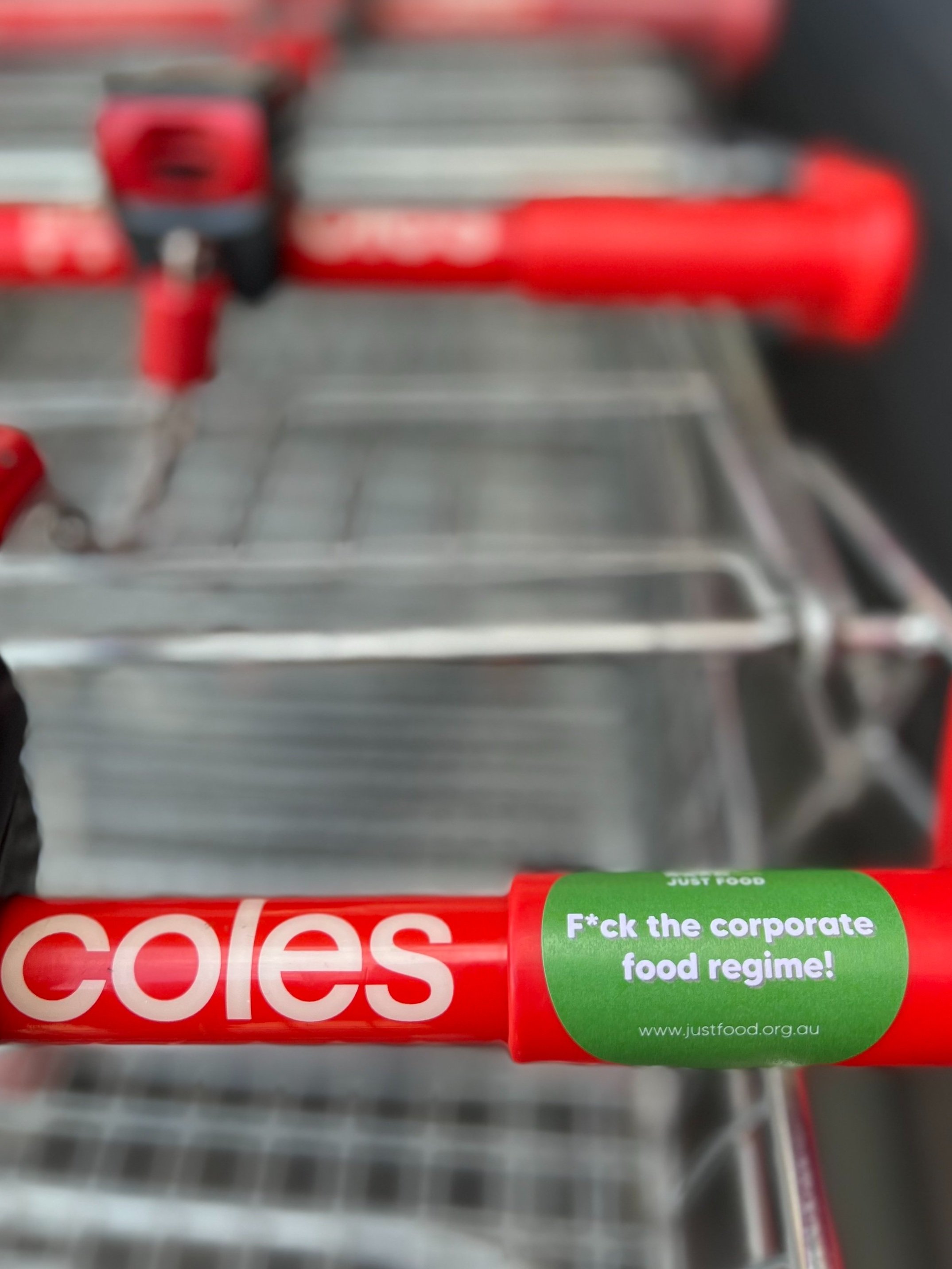Alternatives to the duopoly
Tired of the supermarket duopoly? You're not alone. Across Melbourne/Naarm, more and more people are turning to local, community-driven food options that offer fairness, flexibility, and real connection. In the lead-up to Anti-Poverty Week, we’ve rounded up alternative ways to access food — including grocers, co-ops, and farmers markets that put people before profit.
Farmers Markets
Farmers markets are found all over our city, connecting urban and Victoria-wide growers to a cityscape of urbanised people. The Melbourne Farmers Market (MFM) is the body that manages the northside Farmers Markets, with the south and eastern suburb markets operating independently.
They all stock a range of fruit and veg, honey, bread, eggs, juices, meats and poultry, and sometimes seafood and have a rotating mix of hot food stalls, with at least one including coffee for each market. Their locations are often welcoming and family-friendly, making it a perfect Saturday or Sunday morning adventure for groceries if that works with your schedule.
MELBOURNE FARMERS MARKETS
OTHER
Markets
Larger markets are dotted around the city and provide a permanent and fixed home for fruit and veg, as well as other groceries. Preston, South Melbourne and Queen Victoria are the most loved and have decades-long loyal customers. They exist on a scale of affordability, which is helpful when you’re moving away from the supermarket, but moderate food prices are a high priority.
Farmgates
Farmgates are the ultimate deal for our beloved farmers, especially those working in urban environments with small lots, sometimes not producing enough food needed for large contract deals with distributors. Direct sales to consumers are the best chain for our broken food system, and seeking the farmgates out, whether that be messaging the farmer on social media for days and times or doing a drive-by, is a contribution to the local economy that we all wish we could make weekly. Joe’s Ceres Market Garden is a beautiful spot on Merri Creek that is open 8:30-1 every day with fresh produce picked by volunteers. Farm Raiser is an urban farm in Bellfield with a farmgate stall open to the public on Fridays. It has a sliding scale payment system, something that we commend FarmRaiser for doing, despite being aware of the financial stress that market gardeners endure year long.
The ‘checkout’ at Farm Raisers’s Farm Gate
Small Independent Grocers
Grocers are businesses, and some exist similarly to supermarkets. We have included them here because they are not the major two supermarkets, and many are family owned or independently run. This category includes any corner fruit and veg store, for instance, Frootz on Parade (Clifton Hill) and Tanaka (Carlton). You can also access food as a give-and-take model in Tanaka via their community fridge. The Hub Bulk & Bare (Fairfield) is a bulk food store without the need to make everything organic, and therefore expensive. The Common Good (Hawthorn) have been servicing the community since 2013 are committed to knowing its stockists and their customers.
E-grocer and Box Delivery
This market is forever increasing and shifting, going in waves through the pandemic and most coming out the other side. Some of the platforms that have thorough systems in place for delivery and variety of product include Hagens Organics, Organic Ease, Northside Fruit & Veg and Ceres Fair Food. All deliver to metropolitan suburbs. People like Northside gather all of the in season produce from growers just outside the city, and give you access to it via Fresho, an online platform primarily for wholesale orders. Then there are the box delivery schemes that are highlighting the needs of both farmers and civilians, Healthy Fresh Food Boxes in Brunswick and Edi Grocer, with Prom Coast Food Collective offering boxes and also à la carte fruit and veg. Not all of these deliver to all of Melbourne. Open Food Network is a platform that combines growers, producers, and makers via a helpful map directory, where you can purchase from the producer through the website (better-for-the-farmer approach). Here, you can really connect and get to know the farmers that grew your food.
Anti-Poverty Week is upon us on the 16th of October so its timely to mention how food relief is playing a role and shaping our system (will its impacts and the power of actors within it up for healthy discussion and debate). The closest list of all food relief services we could find is the City of Melbourne’s Community Food Map, hopefully there is a location close to you that you may not even know about!
READ MORE




